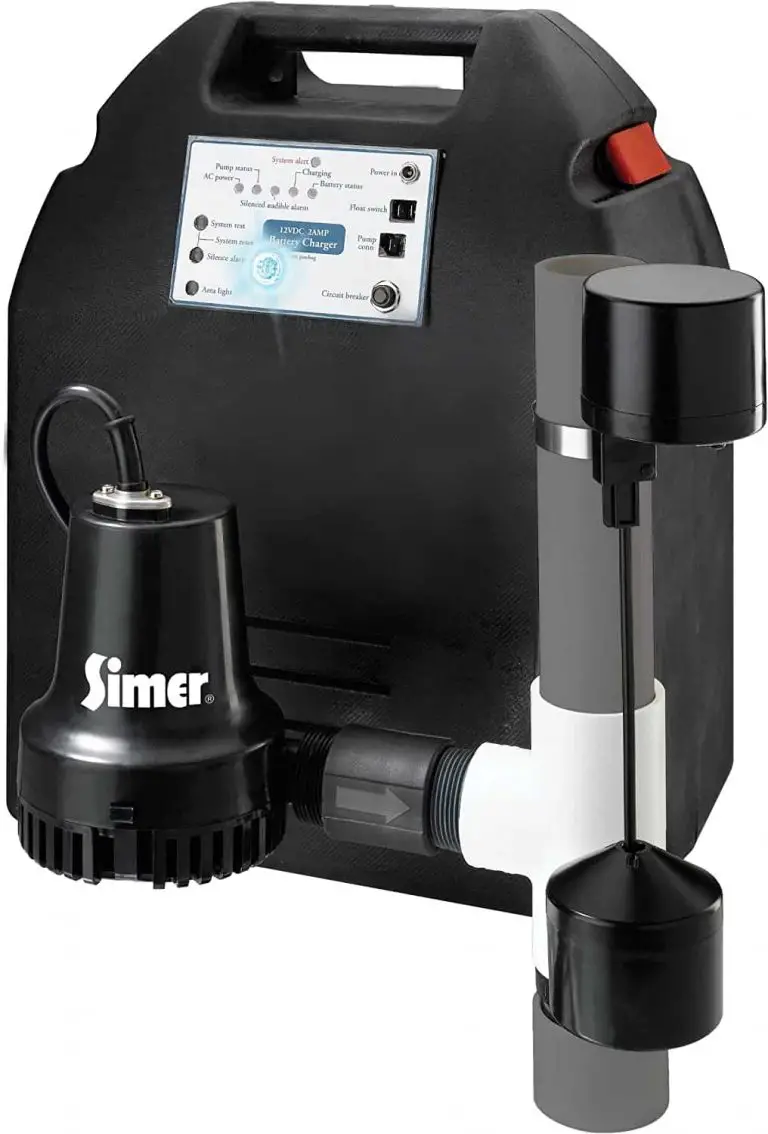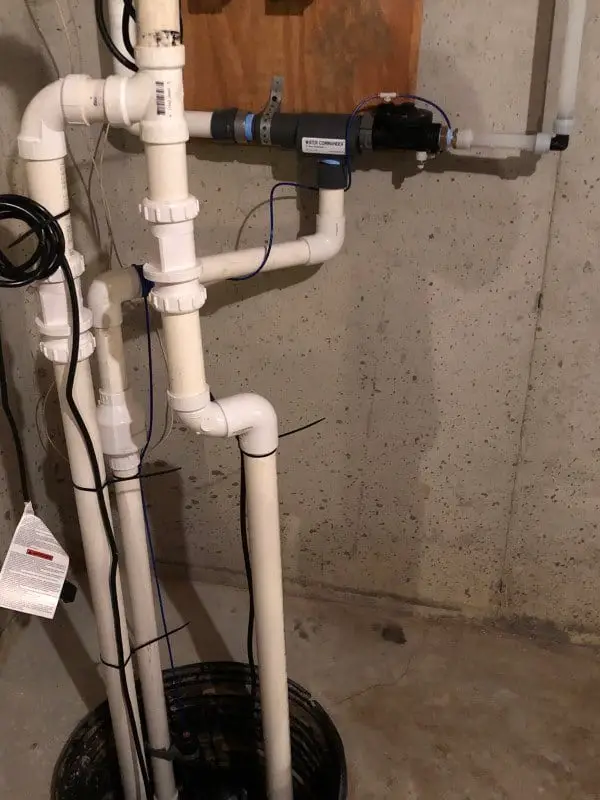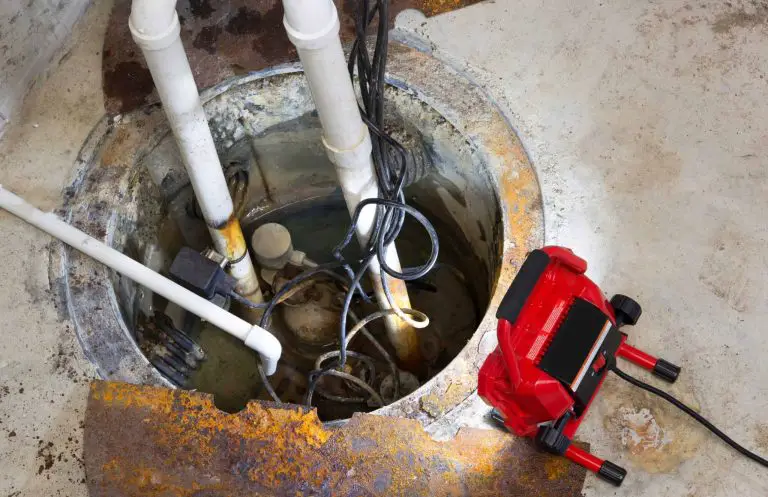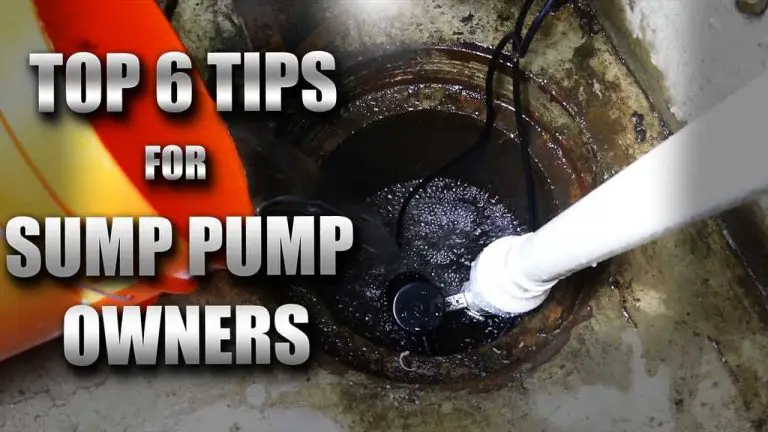Can a Faulty Sump Pump Increase a Water Bill
A sump pump is a device that is used to remove water from an area. The most common use for a sump pump is to remove water from a basement or crawl space.
If a sump pump is not working properly, it can cause an increase in the water bill. There are several things that can cause a sump pump to stop working properly.
One of the most common causes is a power outage. If the power goes out, the sump pump will not be able to operate.
Another common cause of a faulty sump pump is incorrect installation. If your sump pump is faulty, it could be causing your water bill to increase.
A sump pump is responsible for pumping water out of your basement or crawl space to prevent flooding. If the pump isn’t working properly, water can build up and cause problems.
If you think your sump pump might be at fault, check to see if there is any standing water in your basement or crawl space. If so, this could be why your water bill is higher than usual.
You may also want to check the condition of the pump itself. If it’s old or not working properly, it may be time to replace it.
A faulty sump pump can certainly contribute to a higher water bill. But if you take care of the problem right away, you can avoid any further damage and keep your home dry and comfortable.
6 Things Sump Pump Owners NEED to Know
High Water Bill No Visible Leak
If you’ve received a high water bill and there’s no visible leak, there are a few potential causes. A hidden leak is the most likely culprit, but your home’s plumbing could also be to blame.
Here’s a look at some of the possible reasons for a high water bill with no visible leak: 1. Hidden Leak: A hidden leak is the most common cause of a high water bill with no visible leak.
These leaks can happen anywhere in your home’s plumbing, from the pipes themselves to the fixtures and fittings. To find a hidden leak, start by checking all of your faucets and appliances for any drips or leaks.
If you don’t see any, then it’s time to check your home’s plumbing for leaks. Start by checking exposed pipes for any signs of leakage (e.g., dampness, discoloration, etc.).
If you don’t see anything obvious, then you may need to call in a professional plumber to help locate the source of the leak. 2.
Inefficient Plumbing: Another possible reason for a high water bill with no visible leak is inefficient plumbing. This can happen if your home has old or outdated plumbing fixtures and fittings that aren’t as efficient as newer models.
Inefficient plumbing can also be caused by leaks in the system itself (e.g., cracks or breaks in the pipes). To improve your home’s plumbing efficiency, start by replacing old fixtures and fittings with new ones that are designed to be more efficient (low-flow toilets and showerheads are a good place to start).
You should also have any leaks repaired as soon as possible to prevent further wasted water (and money). 3. Meter Error: In rare cases, a high water bill with no visible leak can be caused by an error on your water meter itself.
High Water Bill No Visible Leak Reddit
If your water bill is suddenly higher than normal, but you can’t see any evidence of a leak, there are several possible explanations. First, check for leaks in your home by checking all faucets, toilets, and appliances that use water.
If everything appears to be in good working order, the next step is to check your outdoor spigots and hoses. If they’re not leaking, the most likely culprit is a leak in your underground sprinkler system.
To check for this, turn off all water to your home and then go outside and look at your meter. If it’s still running, you have an underground leak.
Can a Bad Water Heater Raise Water Bill
A water heater is one of the most important appliances in your home. It provides hot water for bathing, cooking, and cleaning.
But if your water heater is old or inefficient, it can raise your water bill. The first thing you need to do is check your water heater’s energy efficiency rating.
If it’s less than 90%, it’s time for a new one. There are many different types of water heaters on the market, so make sure you choose one that’s right for your home and family.
If you have an electric water heater, you can save money by switching to a tankless model. Tankless water heaters only heat the water when you need it, so you’re not paying to keep a tank of hot water all day long.
You’ll also save space because tankless models are much smaller than traditional ones. If you have a gas-powered water heater, there are some things you can do to improve its efficiency and lower your bills.
Make sure the pilot light is lit and that all the valves are open. You should also insulate the pipes leading to and from the heater. This will help keep the heat in and save energy (and money).
My Water Bill is Too High What Should I Do
If you’re like most people, you probably don’t think about your water bill until you get it. And when it’s higher than usual, it can be a real shock! But don’t worry, there are some things you can do to figure out why your water bill is high and what you can do about it.
First, take a look at your usage for the last few months. Have you used more water than usual? If so, that could be the reason for the higher bill.
Maybe you’ve been watering your lawn more often or filling up your pool more often. Or maybe you have a leak somewhere in your home that’s using up extra water.
If your usage doesn’t seem to be the problem, then the next step is to check for leaks. Even a small leak can waste a lot of water and drive up your bill.
You may be able to find the leak yourself by checking all of your faucets and fixtures for drips. If you can’t find any leaks, or if the leaks seem small, then they may not be causing enough water loss to explain the high bill.
In that case, it’s time to call in a professional plumber to help investigate further. Once you’ve determined what’s causing your high water bill, there are some things you can do about it.
If you’re using more water than usual due to warmer weather or increased yard work, try to cut back where you can and see if that makes a difference on next month’s bill. For leaks, repair them as soon as possible – even small drips can add up over time! And finally, make sure all of your family members know about conserving water so they can help keep costs down too.
Water Bill Tripled in One Month
If you’re a homeowner, you’re probably used to getting a monthly water bill. But what if one month, your bill triples? This can be a shock to the system, and it’s important to understand why it may have happened.
There are a few possible explanations for a water bill that has tripled in one month. One possibility is that there was an issue with your home’s plumbing that caused a large amount of water to be used.
This could be something as simple as a leaky faucet or toilet, or it could be something more serious like a broken pipe. If you suspect that there was an issue with your home’s plumbing, you should call a plumber to take a look.
Another possibility is that your municipality increased its water rates. This isn’t always announced ahead of time, so it can come as quite a surprise when your bill goes up.
If you think this might be the case, you should contact your municipality to find out more information. Finally, it’s also possible that there was simply an error on your bill.
While this is unlikely, it does happen from time to time. If you think there may have been an error on your bill, you should contact your water provider to inquire about it.
If you receive a higher than usual water bill and aren’t sure why, don’t panic! There are usually explanations for such things. By doing some investigation and reaching out to the appropriate people, you should be able to get to the bottom of the matter quickly and easily.
Unexplained High Water Usage
If your water bill is suddenly much higher than normal, there could be a number of explanations. A leaky toilet or dripping faucet can waste a lot of water, and you may not even realize it.
If you have an irrigation system, make sure it isn’t set to run too often or for too long. Check for leaks in your pool and spa, too.
If you can’t find any obvious explanation for the high water usage, contact your local water utility to investigate further. They may be able to tell if there is a problem with your meter or water line.
Water Bill Increase 2022
If your water bill goes up next year, you’re not alone. The City of Seattle is planning to increase water rates by an average of 9 percent in 2022.
The city says the rate hike is necessary to cover the cost of investments in its water system, including a new filtration plant and upgrades to aging pipes and pumps. The higher rates will also help pay for increased operating costs, such as more frequent testing for lead in drinking water.
The average residential customer who uses about 200 gallons of water per day can expect to see their monthly bill increase by about $5.50 next year. Commercial customers will see larger increases, depending on their water usage.
The city is holding two public hearings on the proposed rate increases next month: Tuesday, November 10 at 6 p.m., and Saturday, November 14 at 10 a.m. You can also submit written comments on the proposal through November 25th.
Why is My Sewer Bill So High All of a Sudden
If you’re a homeowner, you’re probably all too familiar with the never-ending list of things that need to be paid for – mortgage, insurance, property taxes…the list goes on. So, when you open your sewer bill and see a sudden increase, it can be quite a shock.
There are a number of reasons why your sewer bill could be higher than normal. First, it could be that the water company made a mistake in their billing.
This happens from time to time, so it’s always worth checking with them to see if this is the case. Another possibility is that there has been an increase in your water usage.
This could be due to anything from extra family members visiting to filling up your swimming pool more often than usual. If you think this might be the cause, take a look at your water usage for the past few months and compare it to the current month.
If there’s been a significant increase, then this is likely the reason for the higher sewer bill. Finally, it’s possible that there are repairs or upgrades being made to the sewer system in your area.
Sometimes these projects can result in higher bills for homeowners as they help cover the cost of materials and labor. However, these charges are usually temporary and will eventually go back down once the project is completed. If you’re unsure about why your sewer bill is suddenly high, don’t hesitate to contact your local water company or municipality for more information.
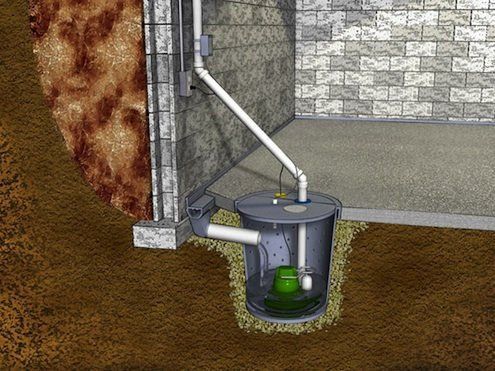
Credit: www.aquaplumbingandheatingllc.com
What Causes High Water Consumption?
It is said that the average person uses 80-100 gallons of water per day. Though this may be true for some, there are many factors that can contribute to high water consumption.
Below are some causes of high water consumption: 1. Diet: What we eat and drink plays a large role in how much water our bodies need.
For example, someone who consumes a lot of sugary drinks or salty foods will need to drink more water to stay hydrated than someone who eats a balanced diet with plenty of fruits and vegetables. 2.
Exercise: Strenuous exercise can cause us to lose fluids through sweating, so it’s important to replenish those fluids by drinking plenty of water before, during, and after exercise. 3.
Weather: Hot weather can make us sweat more, so we need to drink extra water to prevent dehydration. Cold weather, on the other hand, can cause us to urinate more frequently as our bodies try to get rid of excess fluid.
4. Medications: Some medications (such as diuretics) can cause us to urinate more frequently, leading to increased water consumption.
What are Signs of Sump Pump Failure?
If your basement is wet or flooding, your sump pump may have failed. Check for these signs of sump pump failure: 1.
Water in the pit: If you see water in the sump pit, that means the pump isn’t working properly. 2.
No power: If the pump isn’t running, check to make sure it’s plugged in and receiving power. 3.
Clogged intake screen: A clogged intake screen can prevent water from entering the pump, causing it to fail. clean the screen to see if that fixes the problem.
4. Frozen discharge pipe: If the pipe that carries water away from the pump is frozen, the pump can’t work properly.
Thaw out the pipe before using the pump again. 5.
Broken float switch: The float switch turns on the pump when water reaches a certain level in the pit. If this switch is broken, the pump won’t turn on even when there’s water in the pit.
When Should I Worry About Sump Pump?
If you live in an area that experiences heavy rains or flooding, then you should worry about your sump pump. A sump pump is designed to remove water from your home that has accumulated in the sump pit.
If the water level gets too high, then the pump will turn on and begin pumping the water out of your home. You should also worry about your sump pump if you notice that it is making strange noises or if it seems to be working harder than usual.
These could be signs that the pump is failing and needs to be replaced. Finally, you should always have a backup plan for your sump pump. This could include a battery operated backup pump or a generator that can power the pump in case of a power outage.
What Happens When Sump Pump Can’T Keep Up?
If your sump pump can’t keep up with the inflow of water, your basement is in danger of flooding. Here’s what you need to know about sump pump failure and how to prevent it.
A sump pump is a vital part of any basement waterproofing system. The pump is installed in a pit (or sump) at the lowest point in the basement, and its job is to remove water that has accumulated in the pit and keep it from flooding the basement.
However, if the volume of water flowing into the pit is greater than the capacity of the sump pump, it will eventually overflow. When this happens, water will begin seeping through cracks in the foundation or floor, around windows and doors, and through any other openings in the basement walls or floors.
In short, your basement will flood. There are several reasons why a sump pump might not be able to keep up with an inflow of water.
The most common reason is that the pit itself becomes clogged with debris such as dirt, gravel, or mud. This can reduce the flow of water into the pit or block it entirely.
Additionally, if there is a power outage, the sump pump will not be able to operate and will not be able to remove any water from the pit. Finally, if there is a mechanical problem with the pump itself (such as a worn-out impeller), it may not be able to move enough water to keep up with an inflow.
Conclusion
A sump pump is a device that is installed in the lowest point of a home’s foundation in order to remove any water that may have accumulated there. While sump pumps are typically quite reliable, if they do happen to fail, it can result in an increased water bill.
This is because the water that would normally be pumped out by the sump pump will instead accumulate in the home, and will eventually find its way into the home’s sewer system. If this happens, the homeowner will be responsible for paying for any damage that is caused by the overflow.

